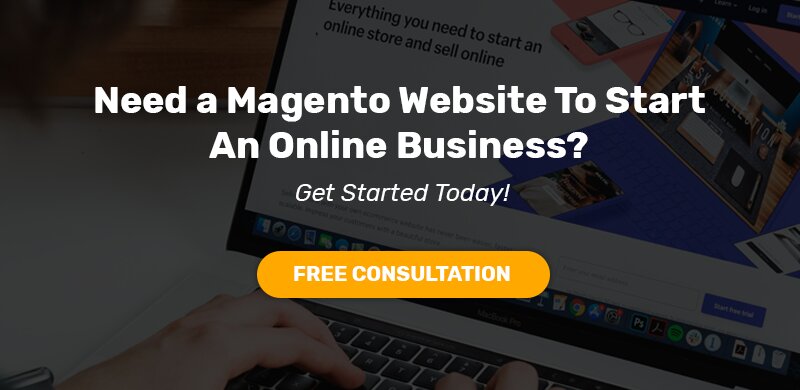“Magento 2 Community vs Enterprise or Magento 2 Open Source vs Commerce, which one to choose?”, “What is the key difference between Magento 2 Community Edition (Magento 2 Open Source) and Enterprise Edition (Magento 2 Commerce)?”
Are you trying to figure out the answer to those questions above? Well, you’re not the only one! They are among the most frequently asked questions by our customers who want to establish their stores from the ground up.
Magento 2 Community vs Enterprise Edition: A Snapshot
Table of Contents
As you know, Magento is one of the leading eCommerce platforms at present. Many businesses, even widely-known companies, are using the Magento platform.
Currently, there are two versions of Magento, which are Magento Community vs Enterprise Editions. Magento Community Edition is the free version, which is suitable for small businesses. You can add various functionalities and extensions to boost your store. Meanwhile, the Enterprise is the advanced version of the Magento 2 Community, which is foundational to building professional businesses.
Long story short, both have the same core features of the platform but for different business sizes. Hence, they differ in pricing, feature list, and support.
To help you decide which version suits you best, we came up with the difference between Magento Enterprise and Community (or Magento 2 Open Source vs Commerce: the latest names) to help you get insight into these two Magento 2 editions.
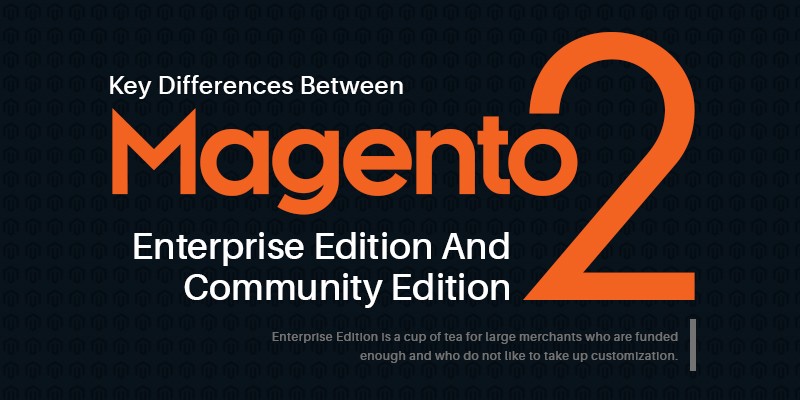
P/S: Recently Magento team has renamed its products:
- Magento 2 Community Edition (CE) was named Magento 2 Open Source.
- Magento 2 Enterprise Edition (EE) was named Magento 2 Commerce.
Magento is not the only choice for starting an eCommerce business. If this platform does not fit your needs and requirements, let’s discover other Magento alternatives such as Shopify, WordPress, or BigCommerce. We also provide a detailed comparison between Magento and its competitors in these posts:
In this article, we will mostly use the Magento Enterprise vs Community. However, you might sometimes come across Magento 2 CE vs. EE for short or Magento 2 Open Source vs. Commerce to help you get familiar.
Now let’s get started with our Magento 2 CE vs EE comparison.
Magento 2 Community vs Enterprise: An In-depth Analysis
Magento Community vs Enterprise Pricing: 1-0
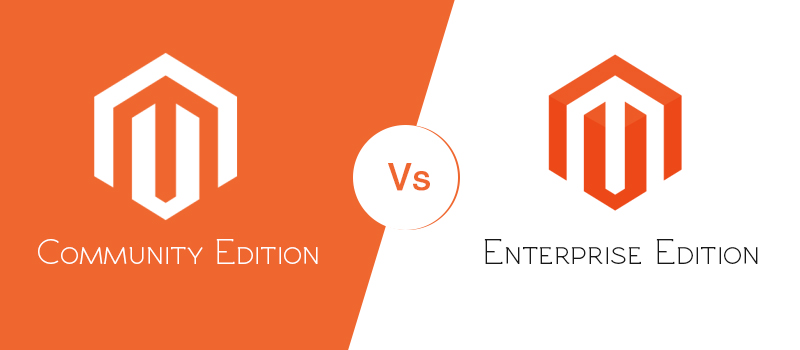
The difference that strikes the eye between Magento 2 Community Edition vs Enterprise Edition is the price.
It is safe to say from such figures that online merchants prefer Magento 2 Community Edition over Magento 2 Enterprise Edition – mostly because of their cost.
Magento 2 CE, as its other name – Open Source, is offered as a free eCommerce platform where you can possibly download Magento’s latest version without paying the additional fee. On the other hand, Magento 2 EE is a paid edition. You can get the full advanced functionalities while being charged with Magento license costs.
Magento 2 EE Pricing = Revenue X Magento License Cost X Percentage
Above is the formula for the Magento Enterprise Edition price, so-called the revenue model. The more your annual gross revenue is, the higher you have to pay. Magento license is usually from $22,000 for less-than-1-million revenue to $125,000 for 10-million revenue and more. Contact us to get the exact Magento 2 license cost.
Moreover, the pricing of hosting combined with Magento 2 EE licensing is negotiable. So, if you don’t have enough investment capacity, the CE version will be more suitable for you.
Magento Enterprise vs Community Features Comparison: 1-1
Magento 2 Community vs Enterprise share the core Magento 2 features list.
Here’s the list of some common features between Magento 2 Enterprise vs Community:
- Improved SEO
- Site management
- Catalog management
- Order management
- Catalog and product browsing
- Checkout, payment, and shipping
- Customer accounts and service
- Analytics and Reporting
- International support
Of course, the paid edition adds more value to online merchants and their customers. But to save money, you still should go with Magento CE. Don’t worry about the missing advanced features in the Community version. You can easily recompense them by installing extensions for Magento 2 developed by providers worldwide.
Speaking of extensions, the fact is modules for Magento CE also cost less than for Magento EE. However, Magento 2 Open Source doesn’t support B2B features. Check the Magento 2 B2B modules to complete inadequate B2B functions now.
Back to the EE version’s additional feature. The features are improved from Magento 2 versions to versions. Accordingly, Magento Enterprise features are comprehensive scalability enhancements to the database, customer loyalty, order management, SEO, checkout experience, and more.
Below are some advanced features making Magento 2 Enterprise over Community:
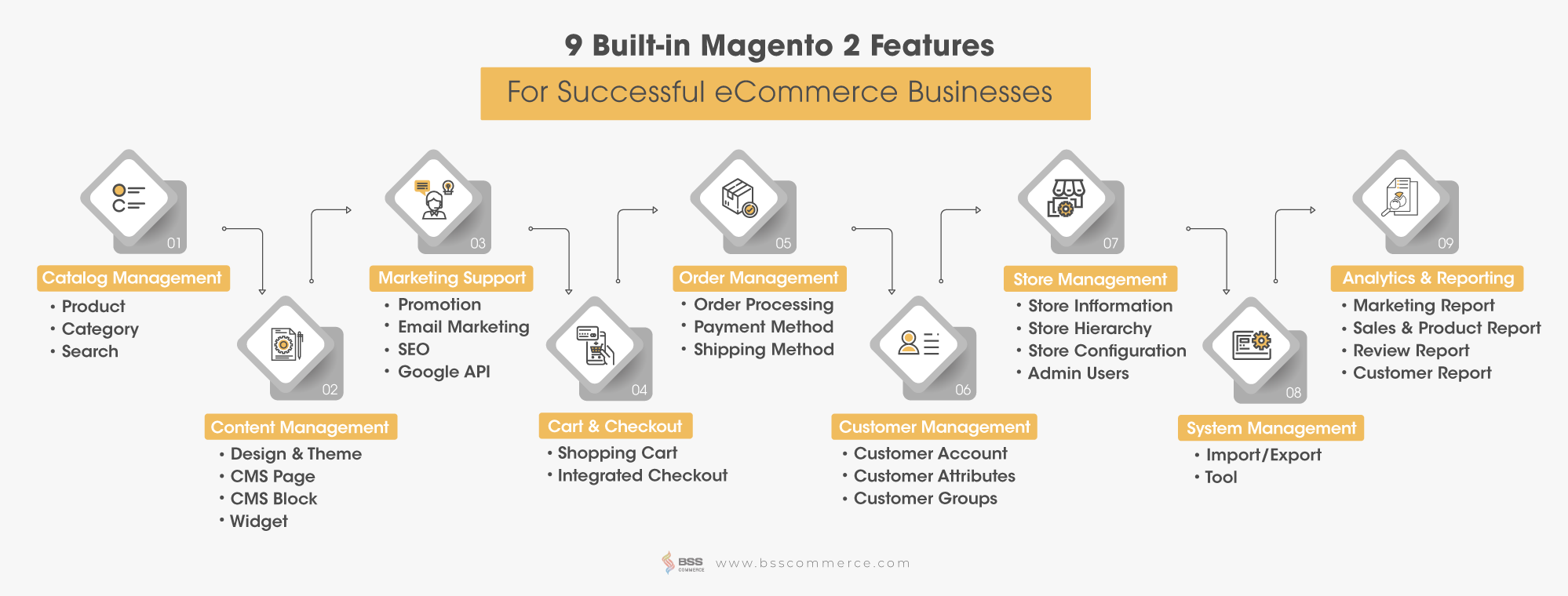
#1. Catalog and product management in Magento 2 Enterprise
- Gift Cards:
Gift Card is the first out-of-box Magento 2 feature in EE that you can find nowhere in the default CE. With the support of this additional product type, the admin can easily create and customize up to three kinds of gift cards (virtual, physical, and combined) with flexible pricing and design.
On the other hand, customers can buy those gift vouchers and give them to friends so that they can redeem the gift card for purchases. Such a Magento 2 gift card feature is one effective marketing tactic to boost sales, especially on holidays.
NOW GET the affordable Magento 2 Gift Card extension for your Magento 2 Community website.
- Related Product Rule:
Related Product Rule is also one of the unique Magento 2 EE features to show off the product recommendation. The related, upsell and cross-sell products are automatically associated in bulk using dynamic conditions, whereas, in Magento 2 CE, the admin has to add them manually for each product. Such a time-consuming task! Even more, the related product rules can be applied to customer segments for better-targeted merchandising.
- Catalog Permissions:
The Magento advanced permission feature in the EE is to limit the specific category access to customer groups as wished. This Magento 2 EE functionality is beneficial if you have both retail and wholesale customers. Accordingly, there are some categories with different pricing and items that are for B2B shoppers only.
If so, to remove unexpected confusion, you should exclude normal customers from seeing this catalog. Now, the Magento advanced permission feature is available to be added to the Magento 2 Community via the well-coded extension.
EQUIP NOW: Magento 2 Category Permission extension to restrict access in the Open Source websites!
- Visual Merchandiser:
When comparing the difference between Magento Community and Enterprise edition, the next Enterprise feature spotlight allows sorting out products and automatically assigning products to categories. The “visual mode” workspace in Magento 2 Enterprise simplifies your jobs by making it even more exciting and easy to define smart rules and position multiple products in category listing within seconds.
Additionally, this feature also allows you to clone categories and create dynamic categories. As a result, you can save your precious efforts in optimizing your product categories to do other sales-generating tasks.
- Schedule Changes:
Magento 2 features for Enterprise Edition are developed with performance enhancements in mind. The admin can set time for different category updates, content changes, or catalog price rules in one go.
#2. Magento 2 EE customer support and management
The next point in the Magento 2 Community vs Enterprise comparison is about customer management functionalities.
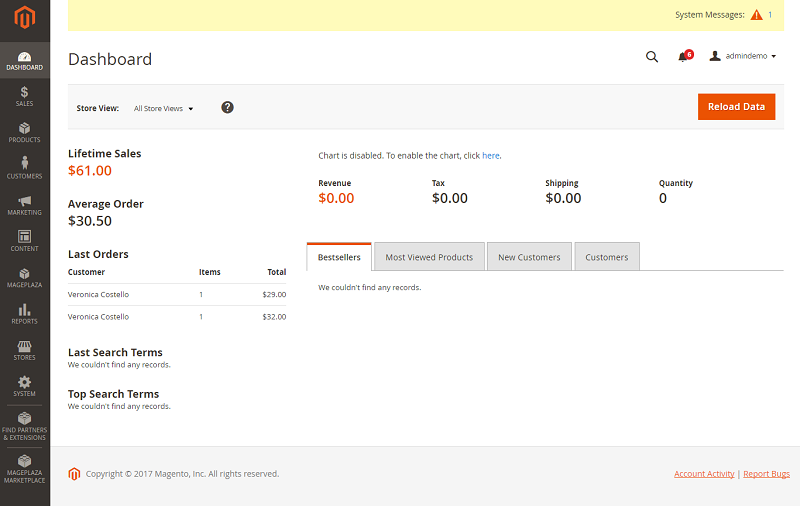
- Customer Segments – Create personalized shopping experiences
This Magento Enterprise Edition feature allows you to display content and promotions to specific customers based on customer information such as an address, order history, shopping cart contents, wish list items, and more. You can also target guest visitors based on viewed and added-to-cart products.
- Customer Attribute – Add new customer attributes
Every business starts with knowing its customers. And, the more you know about your buyers and their demands, the more effectively you target them with appropriate products. Magento 2 Commerce is equipped with a useful tool to leverage customer databases for better marketing strategies by collecting more specific information such as gender, hobby, date of birth, etc.
- Multiple wishlists – Sort out favorite products into various wishlists
It is hard to make purchase decisions, especially when shopping online. Hence, the wishlist serves as a nice place to save and track their favorite products. Believe us, if the customers are engaged enough to add an item to the wishlist, it is more likely that they will come back for the real order. However, the only wishlist in Magento 2 Community Edition is not enough since customer demands are diversified. Multiple wishlists will help to lower cart abandonment.
- Reward Points and Store Credits – Build customer loyalty
This Magento 2 reward system is ideal for launching EE’s loyalty program by offering Reward Points and Store Credits. You can configure to treat award points for your customers based on shopping behavior and allow them to use the reward points at checkout.
Besides Reward Points, another loyalty solution is Store Credits which gives you an opportunity to keep purchasers returning to your store many times. Store credits can be added to customer accounts, or you can refund directly to store credit when creating credit memos.
The reward feature in Magento 2 Enterprise Edition has inspired BSS Commerce to come up with a similar Magento 2 loyalty program extension for the Community Edition, named Magento 2 Reward Points and Magento 2 Store Credit.
- Gift Registry – Create and share various gift lists
With this function, customers are allowed to create gift registries for many special occasions and then send them to friends and family to express what they want. As a result, your store will get many new customers and boost up sales.
#3. Magento 2 Enterprise’s shopping experience and order management
- Add to Cart by SKU – Increase conversion rates
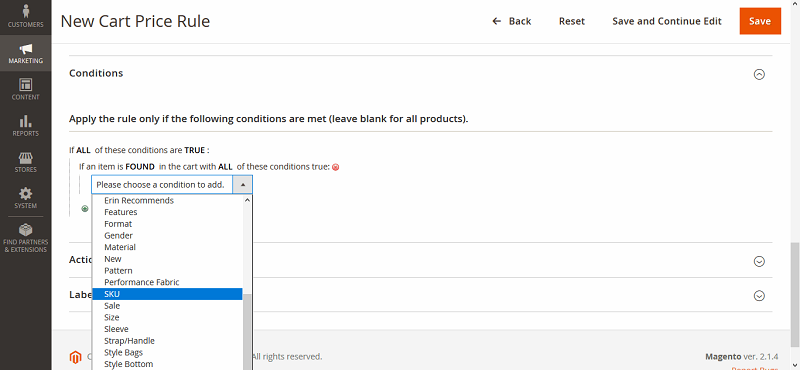
Online buyers in general and wholesalers usually make large orders in particular love fast shopping. Hence, pay attention to this Magento 2 EE feature.
Purchasers can add multiple items to the cart just by entering an SKU list into the available form. It saves customers lots of time without searching and going to individual product pages.
If you are a B2B merchant using Magento 2 Community Edition, you will find many available extensions to exploit this Magento 2 Enterprise Edition.
If you are running a Community website, you can use the Magento 2 Quick Order extension to add multiple products to the cart via a form, or add multiple SKUs and upload a CSV file conveniently.
- Return Management Authorization (RMA) – Simply manage the return process
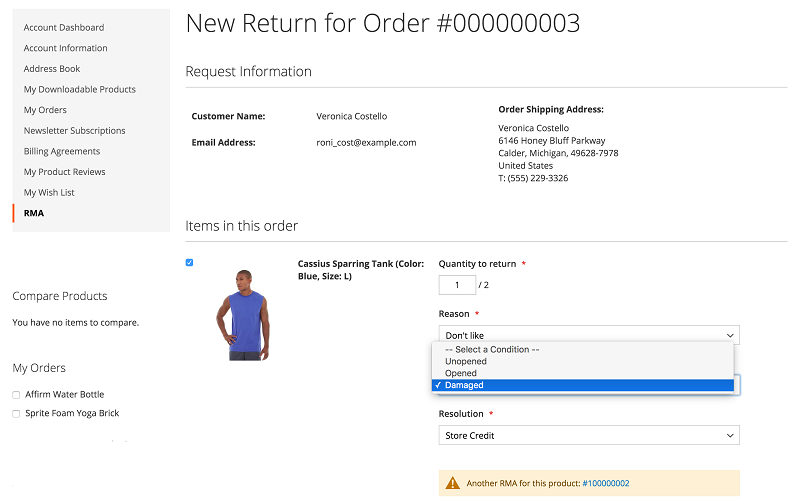
By using this Magento 2 RMA feature for the EE, not only can merchants conveniently authorize returns, exchanges, refunds, and store credits in the Admin panel but customers will also be satisfied with the flexible policy.
Magento 2 Return Merchandise Authorization extension for the Community Edition by Aheadworks provides you the opportunity to take care of all RMA aspects within your store.
- Order Archiving – Improve store performance by archiving orders after a configurable period
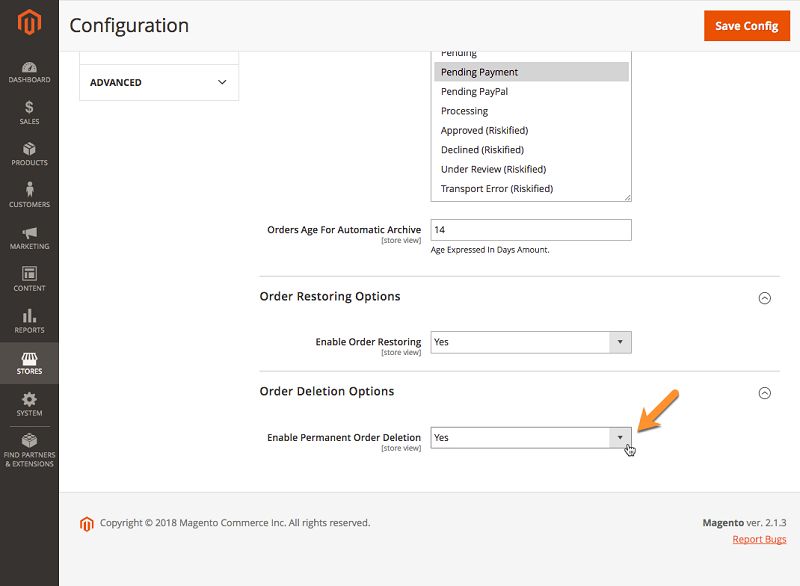
Magento 2 EE archiving order feature keeps your workspace clean from unnecessary order information since shipments, invoices, and credit memos are automatically or manually archived and viewed at any time.
#4. Content management Magento 2 EE
In the eCommerce business, content is still the king making your business outstanding from other competitors. Between Magento 2 Community vs Enterprise, the Enterprise Edition offers more advanced content management tools.
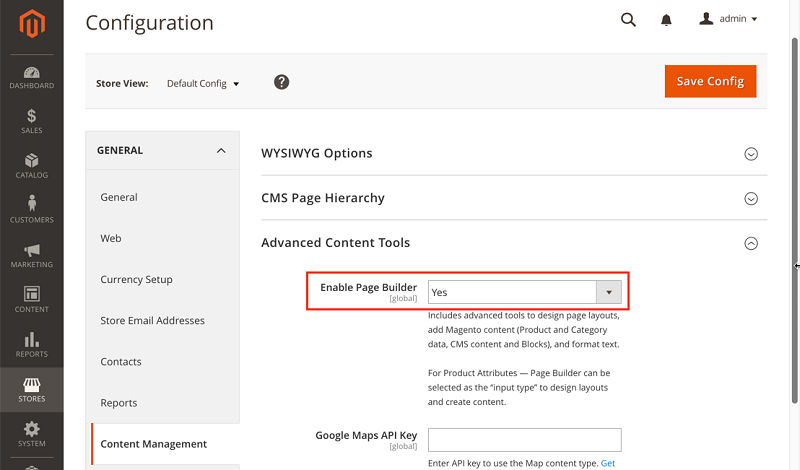
- Banners – Customize promotion banners
A banner is an advanced Magento 2 EE functionality that you can not find in Magento 2 features for the Community Edition list. Accordingly, you can bring any images or block of content to the customers’ eyes in a specific period, especially on your promotion campaigns.
What’s more, you can manage the display of those promotional banners to segment customers or price rules and coupon conditions.
- Content Staging – Create and manage campaigns
With content staging, you will get the chance to create, preview, and schedule content updates right in your store Admin panel. There is a staging dashboard displaying all campaigns for you to manage conveniently.
#5. Magento 2 Enterprise marketing features
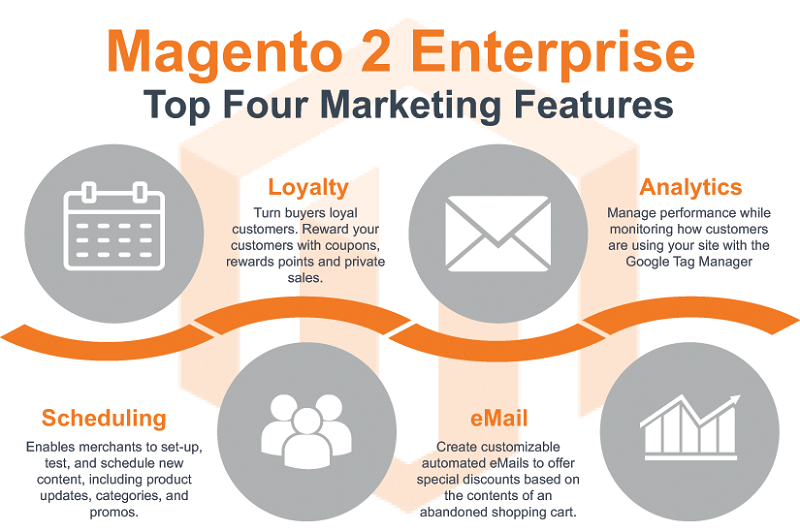
- Private Sales – Build individual sale programs for specific customer groups
This is an excellent tool for you to treat your valuable customers through exclusive sale events. You can easily create various events and manage customer invitations.
- Auto Email Marketing Reminder – Significant increase in sales
Magento 2 EE allows you to set up automated email marketing to remind customers of abandoned shopping carts and wish lists. These emails are launched based on your configuration with rules and various conditions.
- Promotion Rules – Schedule to change rules
In Magento 2 Commerce, catalog price rules can be applied on schedule as part of a campaign, and grouped with other content changes. The admin possibly creates a new campaign based on the scheduled price rule changes or applies the changes to an existing campaign.
#6. B2B Merchants features of Magento 2 Enterprise
ECommerce is no longer the playground of B2C merchants only when there are more and more business-to-business purchasers who prefer online shopping.

They usually demand an easy and personalized experience. As a result, the Magento team came up with Magento 2 B2B Commerce that meets those requirements very well. Here is a list of outstanding features in the Enterprise Edition Magento 2 versions for wholesale buyers:
- Magento Company Account: Customers can register a B2B account to access many wholesale functionalities, while admins can also create and manage company accounts as wanted.
- Quick Order: In Magento 2 EE, wholesalers can place bulk orders by entering SKUs or product names in a quick order form. There is no need to reload dozens of product pages.
- Requisition List: This new Magento feature for B2B in the Enterprise Edition makes it easy for customers to reorder their purchased items on a large scale and at regular intervals.
- Quote Functionality: Offering a flexible and convenient quote system will help to build a goodwill relationship with customers and trigger them to come back frequently.
- Magento B2B Company Credit: Allows B2B companies to use Purchase order payment methods and use credit to purchase products.
- Shared Catalog: Custom pricing Magento 2 function allows you to customize product prices for each customer group.
EXPLORE NOW >>> B2B Website Implementation to help you build an online wholesale business from A to Z.
#7. Analytics and Reporting Features of Magento 2 EE
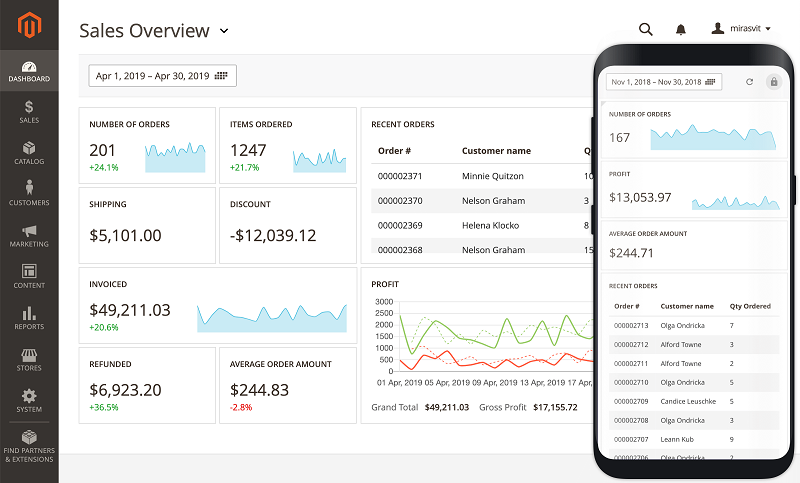
Compared between Magento 2 Community vs Enterprise Edition, the latter includes additional reports to help you keep track of everything in your store. There are reports of Customer wish lists, Customer segments, and Private sales.
#8. Magento 2 Enterprise features for System Management
- Admin Actions Log – Track all administrator’s actions in the admin panel
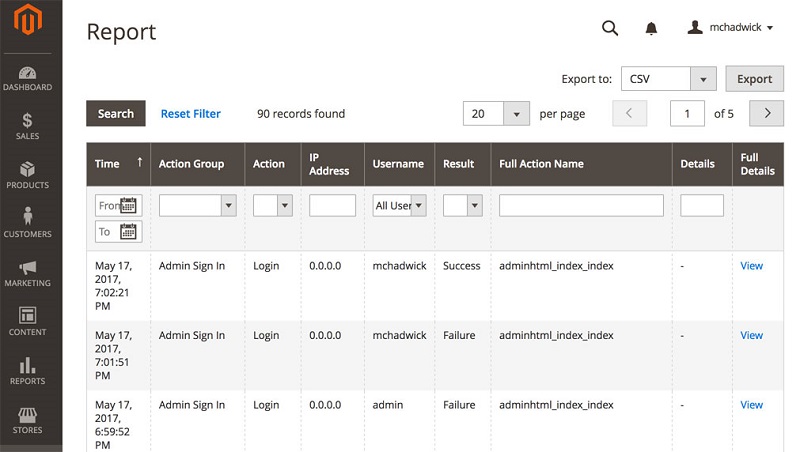
It is an essential tool for Magento 2 websites that have a team of admins. Admin Actions Log lets store owners know everything that happened in their store backend and who performed it.
For Magento 2 Community sites, the Magento 2 Admin Action Log extension has similar Magento features as the Enterprise to record all activities in the backend. Moreover, this module comes with many advanced functions such as tracking logins, page visit histories, and active sessions.
- Magento Advanced Permission – Add multiple permission roles
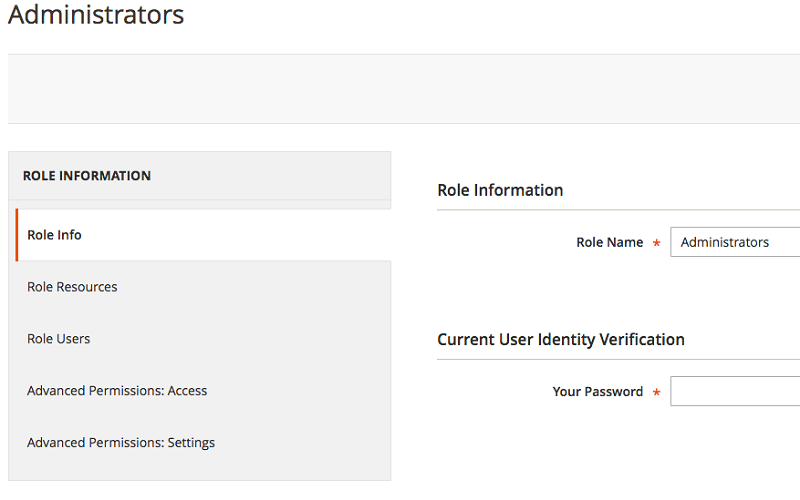
You can create many administrative roles and assign them to relevant Magento advanced permissions such as viewing, editing products, or accessing specific sites.
This Magento Enterprise Edition feature is beneficial when you run a considerable store that involves rich products, categories, store views, and more.
- Google Tag Manager – Support adding tags to your Magento 2 site
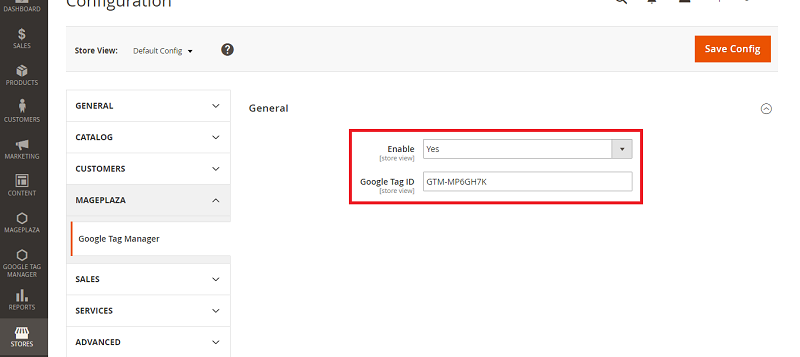
Google Tag Manager in Magento Enterprise Edition allows you to apply and manage multiple tags or snippets related to your store campaign. Moreover, this feature can transfer data directly to Google Analytics and other third-party analytics solutions to help you get the complete analytics of your business.
- Schedule Import/ Export Functionality – Schedule to import/ export files daily, weekly or monthly.
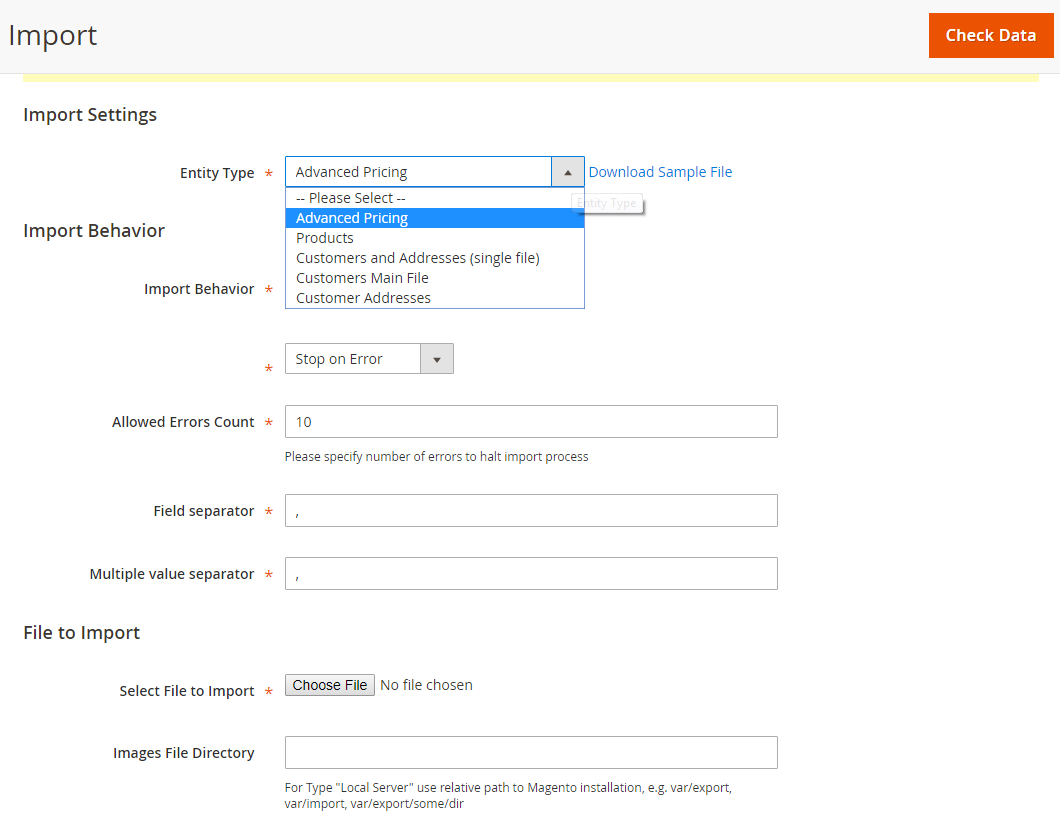
Scheduled Import/Export in Magento Enterprise Edition is implemented by default and managed by Cron job scheduler without requiring any additional configuration. The files to be imported or exported can be located on local Magento servers or remote FTP servers.
- System Report – Get a detailed comprehensive system report
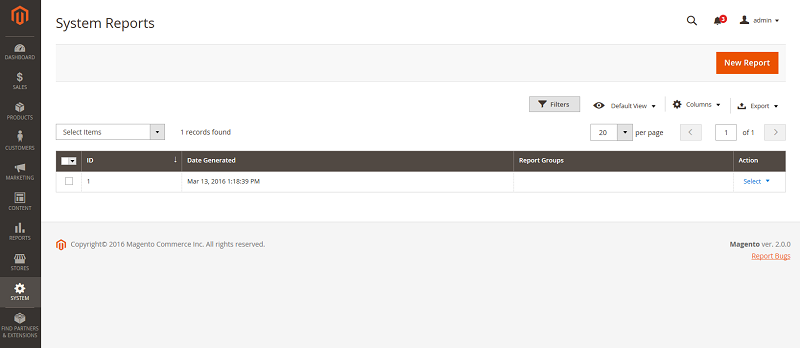
The admin can take periodic full or partial snapshots of the system, and save them for future reference. The system reporting tool can dramatically save time and effort to prepare and submit the information required by Support to begin an investigation.
#9. Mobile Commerce features in Magento EE
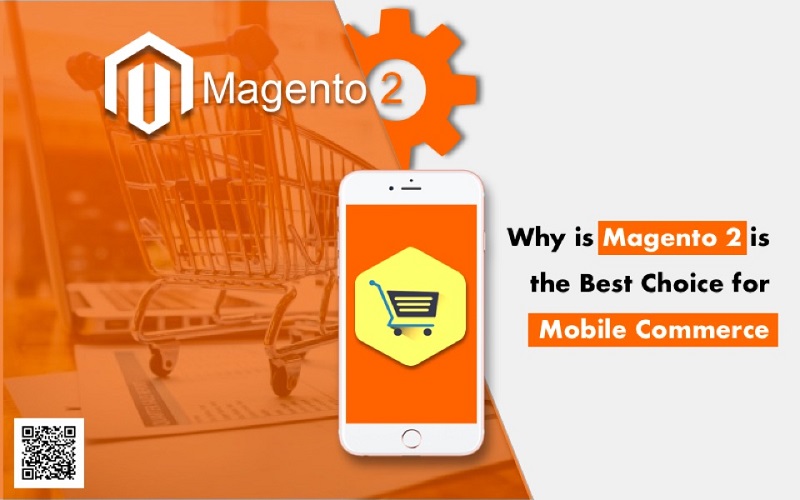
Magento 2 Enterprise Edition supports a more user-friendly mobile environment with Magento Mobile Software Development Kit (SDK). Suppose you create shopping apps in IOS or Android. In that case, Magento Mobile SDK still keeps all key features and includes an API to connect your store website to the app conveniently and provides you with a complete library of resources to refer to.
Magento 2 Community vs Enterprise Support Differences: 1-2
The next point in our Magento Community edition vs Enterprise edition comparison (Magento Open Source vs Commerce) is about the support of the Magento team for merchants. While Magento 2 CE has no support at all, Magento 2 EE is guaranteed with:
- 24/7 technical support with a real team of experts.
- The dedicated account manager will help you optimize your Magento 2 site with security support and recommended verified resources.
- Access to quick-built Express Packages which are designed for small businesses to go live Magento Commerce Cloud platform quickly using bundles of fast-launch and fixed-cost implementation solutions.
Wrapping Up
After comparing Magento 2 Community vs Enterprise, we can infer the conclusion that Magento 2 EE is the flagship version of Magento 2 CE when it comes to its out-of-box feature list and support policies.
Though we strongly recommend using the Enterprise Edition to experience the advanced e-commerce platform and extend your business, we know that the expensive license fee is your big concern.
In that case, we offer you another alternative – use the CE in combination with installing extensions to improve your site performance and functions. You can take a quick tour of our websites; there are hundreds of well-coded Magento 2 extensions at your fingertips.
BSS Commerce is one of the leading Magento extension providers and web development services in the world. With experienced and certified Magento developers, we commit to bringing high-quality products and services to optimize your business effectively. Furthermore, we offer FREE Installation – FREE 1-year Support and FREE Lifetime Update for every Magento extension.

